正本提單Original Bill正面北面英文內(nèi)容描述
 正本提單Original Bill正面北面英文內(nèi)容描述
正本提單Original Bill正面北面英文內(nèi)容描述
正本提單Original Bill正面英文內(nèi)容描述:
RECEIVED in apparent good order and condition except as otherwise noted the total number of containers or other packages or units enumerated below for unless otherwise stated, to be transported to such place as agreed, authorized or permitted herein and subject to all the terms and conditions appearing on the front and reverse of this Bill of lading the which the Merchant agrees by accepting this Bill of lading,any local privileges and customs notwithstanding. The particulars given below as stated by the shipper and the weight, measure, quantilly, condition, contents and value of the Goods are unknown to the Carrier. In WITNESS WHERE OF ONE (1) ORIGINAL Bill of Lading has been signed if not otherwise stated below, the same being accomplished the other(s), if any, to be void.
正本提單Original Bill背面/反面英文內(nèi)容描述:
BILL OF LADING
FOR PORT TO PORT SHIPMENT OR FOR COMBINED TRANSPORT
DEFINITIONS
the Carrier or (b) would have been apparent on reasonable inspection by the Merchant at or prior to the time when the Container was stuffed;
(iv) if the Container is not sealed at the commencement of the Carriage except where the Carrier has agreed to seal the Container.
If delivery of the Goods or any part thereof is not taken by the Merchant, at the time and place when and where the Carrier is entitled to call upon the Merchant to take delivery thereon, the Carrier shall be entitled to store the Goods or any part thereof at the sole risk of the Merchant,where upon the liability of the Carrier in respect of the 了解更多,點(diǎn)擊進(jìn)入
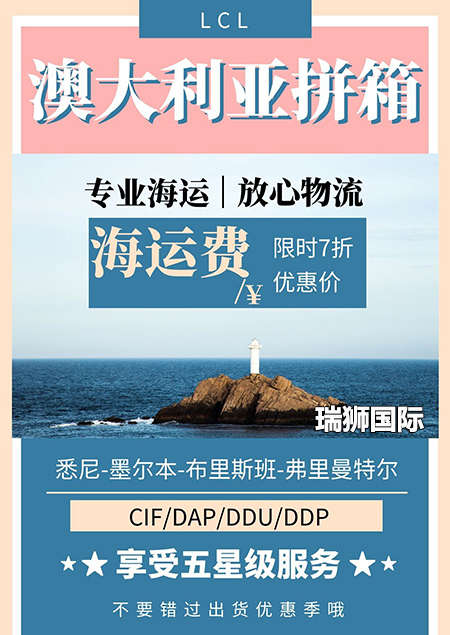
"Merchant" means and includes the Shipper, the Consignor, the Holder of this Bill of Lading, the Receiver and the Owner of the Goods.
"Carrier" means Windex Freight Services Co., Ltd
"Hague Rules" means the provisions of the International Convention for Unification of certain Rules relating to Bills of Lading signed at Brussels on 25th August 1924.
"Hague-Visby Rules" means the Hague Rules as amended by the Protocol signed at Brussels on 23rd February 1968.
"Hamburg Rules" means the provisions of the United Nations Convention on the Carriage of Goods by Sea 1978.
"COGSA 1971/92" means the Carriage of Goods by Sea Act of the United Kingdom dated 8th April 1971 and also includes the provisions of the Act dated 16th July 1992.
"COGSA 1936" means the Carriage of Goods by Sea Act of the United States of America approved on 16th April 1936.
"COGWA 1993" means the Carriage of Goods by Water Act of Canada dated May 6th 1993. "SDR'S" means Special Drawing Rights as defined by the International Monetary Fund. "Container" includes any type of Container, Trailer, Flat or Unit Load Device.
"Person" includes an individual, a firm and a body corporate.
CONDITIONS
1.APPLICABILITY
The provisions set out and referred to in this document shall apply if the transport as described on the face of the Bill of Lading is Port to Port or Combined Transport.
2.CARRIER'S TARIFF 了解更多,點(diǎn)擊進(jìn)入
 The provisions of the Carrier's applicable Tariff, if any, are incorporated herein. Copies of such provisions are obtainable from the Carrier or his agents upon request or, where applicable, from a government body with whom the Tariff has been filed. In the case of inconsistency between this Bill of Lading and the applicable Tariff, this Bill of Lading shall prevail.
The provisions of the Carrier's applicable Tariff, if any, are incorporated herein. Copies of such provisions are obtainable from the Carrier or his agents upon request or, where applicable, from a government body with whom the Tariff has been filed. In the case of inconsistency between this Bill of Lading and the applicable Tariff, this Bill of Lading shall prevail.
3.WARRANTY
The Merchant warrants that in agreeing to the terms hereof he is the agent of and has the authority
of the person owning or entitled to the possession of the Goods or any person who has a present or future interest in the Goods.
4.NEGOTIABILITY AND TITLE TO THE GOODS
(1)This Bill of Lading shall be non-negotiable unless made "to order" in which event it shall be negotiable and shall constitute title to the Goods and the holder shall be entitled to receive or to transfer the Goods herein described.
(2)This Bill of Lading shall be prima facie evidence of the taking in charge by the Carrier of the Goods as herein described. However, proof to the contrary shall not be admissible when this Bill of Lading has been negotiated or transferred for valuable consideration to a third party acting in good faith.
5.ISSUANCE OF THIS BILL OF LADING
By issuance of this Bill of Lading the Carrier assumes liability as set out in these Conditions and
(1)For Port to Port or Combined Transport, undertakes to perform and/or in his own name to procure the performance of the entire transport, from the place at which the Goods are taken in charge to the place designated for delivery in this Bill of Lading.
(2)For the purposes and subject to the provisions of this Bill of Lading, the Carrier shall be responsible for the acts and omissions of any person of whose services he makes use for the performance of the Contract evidenced by this Bill of Lading, but see clause 26 below. 了解更多,點(diǎn)擊進(jìn)入
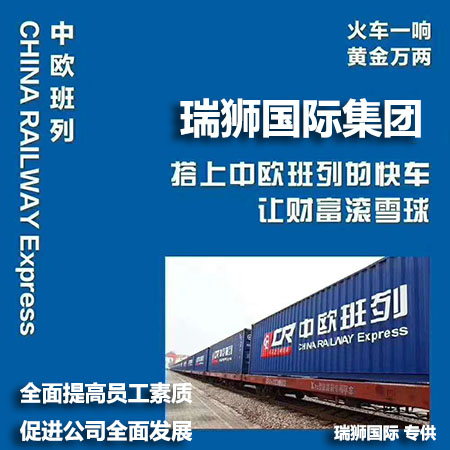 (3)When issued on a Port to Port Basis, the responsibility of the Carrier is limited to that part of the Carriage from and during loading onto the vessel up to and during discharge from the vessel and the Carrier shall not be liable for any loss or damage whatsoever in respect of the Goods or for any other matter arising during any other part of the Carriage even though charges for the whole Carriage have been charged by the Carrier. The Merchant constitutes the Carrier as agent to enter into contracts on behalf of the Merchant with others for transport, storage, handling or any other services in respect of the Goods prior to loading and subsequent to discharge of the Goods from the vessel without responsibility for any act or omission whatsoever on the part of the Carrier or others and the Carrier may as such agent enter into contract with others on any terms whatsoever including terms less favourable than the terms in this Bill of Lading.
(3)When issued on a Port to Port Basis, the responsibility of the Carrier is limited to that part of the Carriage from and during loading onto the vessel up to and during discharge from the vessel and the Carrier shall not be liable for any loss or damage whatsoever in respect of the Goods or for any other matter arising during any other part of the Carriage even though charges for the whole Carriage have been charged by the Carrier. The Merchant constitutes the Carrier as agent to enter into contracts on behalf of the Merchant with others for transport, storage, handling or any other services in respect of the Goods prior to loading and subsequent to discharge of the Goods from the vessel without responsibility for any act or omission whatsoever on the part of the Carrier or others and the Carrier may as such agent enter into contract with others on any terms whatsoever including terms less favourable than the terms in this Bill of Lading.
6.DANGEROUS GOODS INDEMNITY
(1)The Merchant shall comply with the rules which are mandatory according to the National.Law or by reason of International Convention, relating to the carriage of Goods of a dangerous nature, and shall in any case inform the Carrier in writing of the exact nature of the danger, before.Goods of a dangerous nature are taken in charge by the Carrier and indicate to him, if need be, the precautions to be taken.
(2)If the Merchant fails to provide such information and the Carrier is unaware of the dangerous nature of the Goods and the necessary precautions to be taken and if, at the time, they are deemed to be a hazard to life or property, they may at any place be unloaded, destroyed or rendered harmless, as circumstances may require, without compensation, and the Merchant shall be liable for all loss, damage, delay or expenses arising out of their being taken in charge, or their carriage,or of any services incidental thereto.
(3)If any Goods shipped with the knowledge of the Carrier as to their dangerous nature shall become a danger to the vessel, vehicle or cargo, they may in like manner be unloaded or landed at any place or destroyed or rendered innocuous by the Carrier, without liability on the part of the Carrier, except General Average, if any.
7.DESCRIPTION OF GOODS AND MERCHANT'S PACKING 了解更多,點(diǎn)擊進(jìn)入
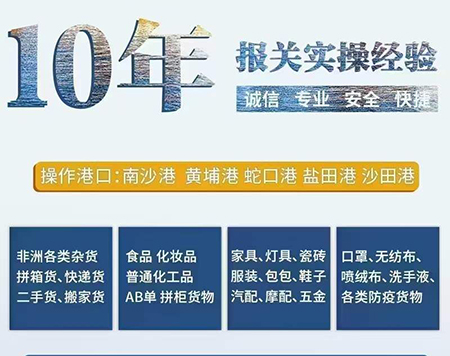
(1)The Merchant shall be deemed to have guaranteed to the Carrier the accuracy, at the time the Goods were taken in charge by the Carrier, of the description of the Goods, marks, numbers,quantity, weight and/or volume as furnished by him, and the Merchant shall defend, indemnify and hold harmless the Carrier against all loss, damage and expenses arising or resulting from inaccuracies in or inadequacy of such particulars. The right of the Carrier to such obligation from the Merchant shall in no way limit his responsibility and liability under this Bill of Lading to any person other than the Merchant.
(2)Without prejudice to Clause 8 (A) (2) (c), the Merchant shall be liable for any loss, damage or injury caused by faulty or insufficient packing of Goods or by faulty loading or packing within containers and trailers and on flats when such loading or packing has been performed by the Merchant or on behalf of the Merchant by a person other than the Carrier, or by defect or unsuitability of the containers, trailers or flats, when supplied by the Merchant, and shall defend,indemnify and hold harmless the Carrier against any additional expenses so caused.
(3)It is agreed that superficial rust, oxidation or any like condition due to moisture is not a condition of damage but is inherent to the nature of the Goods and acknowledgement of the receipt of the Goods in apparent good order and condition is not a representation that such conditions of rust, oxidation or the like did not exist on receipt. 了解更多,點(diǎn)擊進(jìn)入
 (4)(a) The Merchant undertakes not to tender for transportation any Goods which require temperature control without previously giving written notice of their nature and particular temperature range to be maintained and in the case of a temperature controlled Container stuffed by or on behalf of the Merchant further undertakes that the Goods have been properly stuffed in the Container and that its thermostatic controls have been properly set by the Merchant before receipt of the Goods by the Carrier. If the said requirements are not complied with the Carrier shall not be liable for any loss of or damage to the Goods by such non-compliance.
(4)(a) The Merchant undertakes not to tender for transportation any Goods which require temperature control without previously giving written notice of their nature and particular temperature range to be maintained and in the case of a temperature controlled Container stuffed by or on behalf of the Merchant further undertakes that the Goods have been properly stuffed in the Container and that its thermostatic controls have been properly set by the Merchant before receipt of the Goods by the Carrier. If the said requirements are not complied with the Carrier shall not be liable for any loss of or damage to the Goods by such non-compliance.
(b) The Carrier shall not be liable for any loss of or damage to the Goods arising from latent defects, derangement, breakdown, stoppage of the temperature controlling machinery, plant insulation or any apparatus of the Containers, provided that the Carrier shall before or at the beginning of the transport exercise due diligence to maintain the temperature controlled Container in an efficient state.
8.EXTENT OF LIABILITY
A.(1) The Carrier shall be liable for loss or damage to the Goods occurring between the time when they take the Goods into their charge and the time of delivery.
(2)The Carrier shall, however, be relieved of liability for any loss or damage if such loss or damage was caused by 了解更多,點(diǎn)擊進(jìn)入
 (a)an act or omission of the Merchant, or person other than the Carrier acting on behalf of the Merchant or from whom the Carrier took the Goods in charge:
(a)an act or omission of the Merchant, or person other than the Carrier acting on behalf of the Merchant or from whom the Carrier took the Goods in charge:
(b)insufficiency or defective condition of the packaging or marks and/or numbers:
(c)handling, loading, storage or unloading of the Goods by the Merchant or any person acting on behalf of the Merchant:
(d)inherent vice of the Goods:
(e)strike, lockout, stoppage or restraint of labour, the consequences of which the Carrier could not avoid by the exercise of reasonable diligence:
(f)a nuclear incident if the operator of a nuclear installation or a person acting for him is liable for this damage under an applicable International Convention or National Law governing liability in respect of nuclear energy:
(g)any cause or event which the Carrier could not avoid and the consequences whereof he could not prevent by the exercise of reasonable diligence.
(3)The burden of proving that the loss or damage was due to one or more of the above causes or events shall rest upon the Carrier. When the Carrier establishes that, in the circumstances of the case, the loss or damage could be attributed to one or more of the causes and events specified in 了解更多,點(diǎn)擊進(jìn)入
 (b) to (d) above, it shall be presumed that it was so caused. The claimant shall, however, be entitled to prove that the loss or damage was not, in fact, caused wholly or partly by one or more of these causes or events.
(b) to (d) above, it shall be presumed that it was so caused. The claimant shall, however, be entitled to prove that the loss or damage was not, in fact, caused wholly or partly by one or more of these causes or events.
B.When in accordance with Clause 8 A.(1) the Carrier is liable to pay compensation in respect of loss or damage and the stage of transport where loss or damage occurred is known, the liability of the Carrier in respect of such loss or damage shall be:-
(1)determined by the provisions contained in any International Convention or National Law, which provisions
(a)cannot be departed from by private contract, to the detriment of the claimant, and
(b)would have applied if the claimant had made a separate and direct contract with the Carrier in respect of the particular stage of transport where the loss or damage occurred and received as evidence thereof any particular document which must be issued in order to make such International Convention or National Law applicable.
(2)with respect to the transportation in the United States of America or in Canada to the Port of Loading or from the Port of Discharge, the responsibility of the Carrier shall be to procure transportation by carriers (one or more) and such transportation shall be subject to the inland carriers' contracts of carriage and tariffs and any law compulsorily applicable. The Carrier guarantees the fulfilment of such inland carriers' obligation under the contracts and tariffs.
9.CONTAINERS
(1)Goods may be stuffed by the Carrier in or on Containers and Goods may be stuffed with other Goods.
(2)The terms of this Bill of Lading shall Govern the responsibility of the Carrier in connection with or arising out of the supply of a Container to the Merchant, whether supplied before or after the Goods are received by the Carrier or delivered to the Merchant.
(3)If a Container has been stuffed by or on behalf of the Merchant.
(A)the Carrier shall not be liable for loss or damage to the Goods;
(i)caused by the manner in which the Container has been stuffed
(ii)caused by the unsuitability of the Goods for carriage in Containers; 了解更多,點(diǎn)擊進(jìn)入
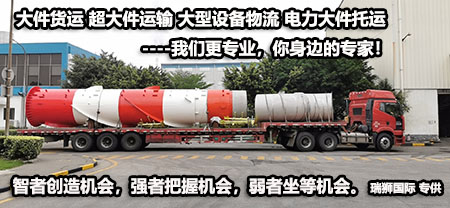 (iii)caused by the unsuitability or defective condition of the Container provided that where the Container has been supplied by or on behalf of the Carrier, this paragraph (iii) shall only apply if the unsuitability or defective condition arose (a) without any want of due diligence on the part of
(iii)caused by the unsuitability or defective condition of the Container provided that where the Container has been supplied by or on behalf of the Carrier, this paragraph (iii) shall only apply if the unsuitability or defective condition arose (a) without any want of due diligence on the part of
(B)the Merchant shall defend, indemnify and hold harmless the Carrier against any loss, damage,claim, liability or expense whatsoever arising from one or more of the matters covered by (A)above except for (A) (iii) (a)
(4)Where the Carrier is instructed to provide a Container, in the absence of a written request to the contrary, the Carrier is not under an obligation to provide a Container of any particular type or quality. 了解更多,點(diǎn)擊進(jìn)入
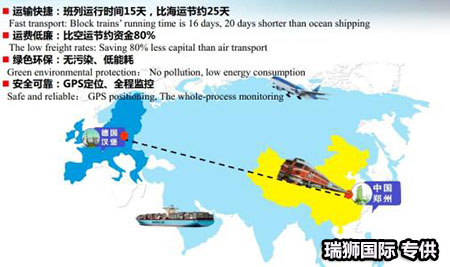 10.PARAMOUNT CLAUSE
10.PARAMOUNT CLAUSE
(1)This Bill of Lading insofar as it relates to sea carriage by any vessel whether named herein or
not shall have effect subject to the Hague Rules or any legislation making such Rules or the Hague-Visby Rules compulsorily applicable (such as COGSA 1971/92 or COGSA 1936) to this Bill of Lading and the provision of the Hague Rules or applicable legislation shall be deemedincorporated herein. The Hague Rules (or COGSA 1936 if this Bill of Lading is subject to U.S.
law) shall apply to the carriage of Goods by inl and waterways and reference to carriage by sea in such Rules or legislation shall be deemed to include reference to inland waterways. The Hague Rules or applicable legislation shall apply to all Goods whether carried on deck or under deck. If and to extent that provisions of the Harter Act of the United States of America 1893 would otherwise be compulsorily applicable to regulate the Carrier's responsibility for the Goods during any period prior to loading on or after discharge from the vessel, the Carrier's responsibility shall instead be governed by the provisions of Clause 8, but if such provisions are found to invalid such responsibility shall be subject to COGSA 1936. 了解更多,點(diǎn)擊進(jìn)入
 (2)The Carrier shall be entitled (and nothing in this Bill of Lading shall operate to limit or deprive such entitlement) to the full benefit of, and rights to, all limitations of or exemptions from liability and all rights conferred or authorised by any applicable law, statute or regulation of any country including, but not limited to, where applicable any provisions of sections 4281 to 4287,inclusive, of the Revised Statutes of the United States of America and amendments thereto and where applicable any provisions of the laws of the United States of America.
(2)The Carrier shall be entitled (and nothing in this Bill of Lading shall operate to limit or deprive such entitlement) to the full benefit of, and rights to, all limitations of or exemptions from liability and all rights conferred or authorised by any applicable law, statute or regulation of any country including, but not limited to, where applicable any provisions of sections 4281 to 4287,inclusive, of the Revised Statutes of the United States of America and amendments thereto and where applicable any provisions of the laws of the United States of America.
(3)Save where the Hague or Hague/Visby Rules apply by reason of (1) above, this Bill of Lading shall take effect subject to any national law in force at the port of shipment or place of issue of theBill of Lading or elsewhere making the Hamburg Rules compulsorily applicable to this Bill of Lading in which case this Bill of Lading shall have effect subject to the Hamburg Rules which shall nullify any stipulation derogating therefrom to the detriment of the shipper or consignee. 了解更多,點(diǎn)擊進(jìn)入
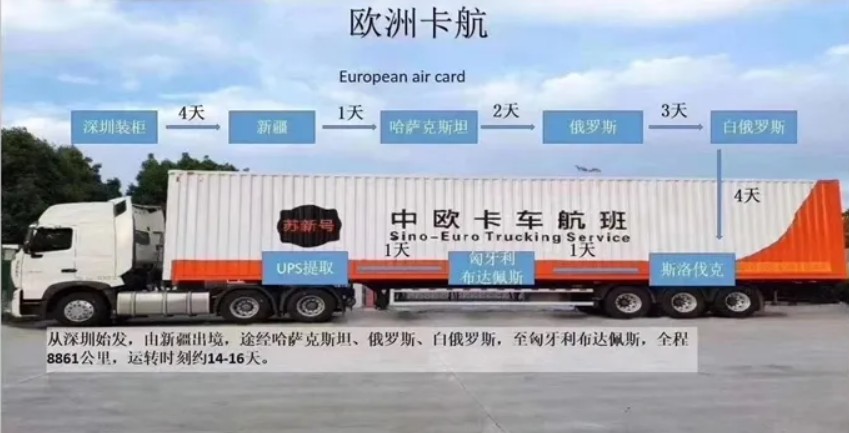 11.LIMITATION AMOUNT
11.LIMITATION AMOUNT
(1)When the Carrier is liable for compensation in respect of loss or damage to the Goods, such compensation shall be calculated by reference to the value of such Goods at the place and time they are delivered to the Consignee in accordance with the contract or should have been so delivered.
(2)The value of the Goods shall be fixed according to the current commodity exchange price, or,if there be no such price, according to the current market price, or, if there be no commodity exchange price or commercial invoice value, by reference to the normal value of Goods of the same kind and quality.
(3)Except where otherwise provided in this Bill of Lading, compensation shall not exceed 2 SDR's per kilo of the gross weight, or 666.67 SDR's per package or unit, of Goods lost or damaged, whichever shall be the greater. SDR's shall be calculated as at the date when settlement is agreed or judgement made. However, the Carrier shall not, in any case, be liable for an amount greater than the actual loss to the person entitled to the claim. 了解更多,點(diǎn)擊進(jìn)入
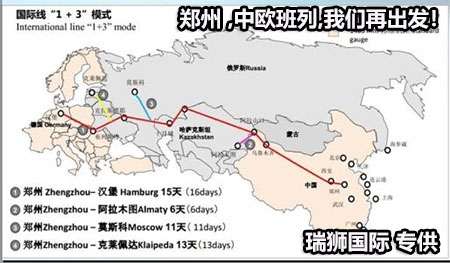 (4)Where the Hague Rules, Hague-Visby Rules or COGSA 1971/92 or COGSA 1936 or Hamburg Rules apply, the Carrier shall not, unless a declared value has been noted in accordance with paragraph 5 of this Clause, be or become liable for any loss or damage to or in connection with the Goods in an amount per package or shipping unit in excess of the package or shipping unit limitation as laid down by the applicable Rules or Act or any legislation making these Rules compulsorily applicable to this Bill of Lading. Such limitation amount, according to COGSA 1971/92 and COGWA 1993 is a sum of 2 SDR's per kilo of the gross weight, or 666.67 SDR's per package or shipping unit, of the Goods lost or damaged, whichever shall be the greater, and according to COGSA 1936 is US$500 per package or shipping unit, of the goods lost or damaged and according to Hamburg Rules is a sum of 2.50 SDR's per kilo of the gross weight, or 835 SDR's per package or shipping unit, of the Goods lost or damaged, whichever shall be the greater. If no other limitation amount is applicable under the relevant compulsory legislation, the limitation shall be according to COGSA 1971/92.
(4)Where the Hague Rules, Hague-Visby Rules or COGSA 1971/92 or COGSA 1936 or Hamburg Rules apply, the Carrier shall not, unless a declared value has been noted in accordance with paragraph 5 of this Clause, be or become liable for any loss or damage to or in connection with the Goods in an amount per package or shipping unit in excess of the package or shipping unit limitation as laid down by the applicable Rules or Act or any legislation making these Rules compulsorily applicable to this Bill of Lading. Such limitation amount, according to COGSA 1971/92 and COGWA 1993 is a sum of 2 SDR's per kilo of the gross weight, or 666.67 SDR's per package or shipping unit, of the Goods lost or damaged, whichever shall be the greater, and according to COGSA 1936 is US$500 per package or shipping unit, of the goods lost or damaged and according to Hamburg Rules is a sum of 2.50 SDR's per kilo of the gross weight, or 835 SDR's per package or shipping unit, of the Goods lost or damaged, whichever shall be the greater. If no other limitation amount is applicable under the relevant compulsory legislation, the limitation shall be according to COGSA 1971/92.
(5)The Carrier's liability, if any, may be increased to a higher value by the Shipper 了解更多,點(diǎn)擊進(jìn)入
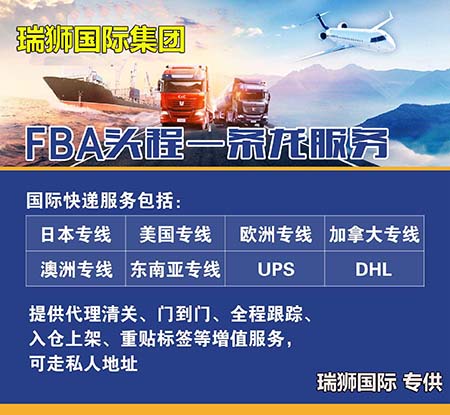 making a declaration, in writing, of the Goods valuation on delivery to the Carrier of the Goods for shipment, such valuation to be inserted on the front of this Bill of Lading, in the space provided, and extra freight paid if required by the Carrier. In such case, if the actual value of the Goods shall exceed such declared value, the value shall nevertheless be deemed to be the declared value and the Carrier's liability, if any, shall not exceed the declared value and any partial loss or damage shall be adjusted pro rata on the basis of such declared value.
making a declaration, in writing, of the Goods valuation on delivery to the Carrier of the Goods for shipment, such valuation to be inserted on the front of this Bill of Lading, in the space provided, and extra freight paid if required by the Carrier. In such case, if the actual value of the Goods shall exceed such declared value, the value shall nevertheless be deemed to be the declared value and the Carrier's liability, if any, shall not exceed the declared value and any partial loss or damage shall be adjusted pro rata on the basis of such declared value.
(6)Where a Container is used to consolidate Goods and such Container is stuffed by the Carrier, the number of packages or shipping units stated on the face of this Bill of Lading in the box provided shall be deemed the number of packages or shipping units for the purpose of any limit of liability per package or shipping unit provided in any International Convention or National Law relating to the Carriage of Goods by Sea or Water. Except as aforesaid the Container shall be considered the package, or shipping unit. The words 'shipping unit' shall mean each physical unit or piece of cargo not shipped in a package, including articles or things of any description whatsoever, except Goods shipped in bulk, and irrespective of the weight or measurement unit employed in calculating freight charges. As to Goods shipped in bulk, the limitation applicable thereto shall be the limitation provided in such convention or law which may be applicable and in no event shall anything herein be construed to be a waiver of limitation as to Goods shipped in bulk. 了解更多,點(diǎn)擊進(jìn)入
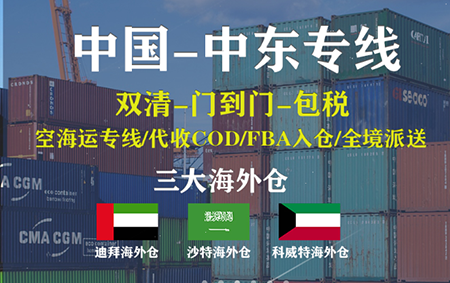 12.DELAY, CONSEQUENTIAL LOSS, ETC.
12.DELAY, CONSEQUENTIAL LOSS, ETC.
(1)Arrival times are not guaranteed by the Carrier. If the Carrier is held liable in respect of delay, consequential loss or damage other than loss of or damage to the Goods, the liability of the Carrier shall be limited to two and a half times the freight payable for the goods delayed but not exceeding the total freight payable under the contract of carriage or the value of the Goods as
determined in Clause 11 whichever is the lesser sum.
(2)If at any time the carriage is or is likely to be affected by any hindrance, risk, delay, difficulty
or disadvantage of any kind (including the condition of the Goods), whensoever and wheresoever arising (whether or not the carriage has commenced) the Carrier may:
(a)without notice to the Merchant abandon the carriage of the Goods and where reasonably possible place the Goods or any part of them at the Merchant's disposal at any place which the Carrier may deem safe and convenient, whereupon the responsibility of the Carrier in respect of such Goods shall cease. 了解更多,點(diǎn)擊進(jìn)入
 (b)without prejudice to the Carrier's rights subsequently to abandon the Carriage under (a)above, continue the carriage. In any event the Carrier shall be entitled to full charges on Goods received for carriage and the Merchant shall pay any additional costs resulting from the above mentioned circumstances.
(b)without prejudice to the Carrier's rights subsequently to abandon the Carriage under (a)above, continue the carriage. In any event the Carrier shall be entitled to full charges on Goods received for carriage and the Merchant shall pay any additional costs resulting from the above mentioned circumstances.
(3)The liability of the Carrier in respect of the Goods shall cease on the delivery or other disposition of the Goods in accordance with the orders or recommendations given by any Government or Authority or any person acting or purporting to act as or on behalf of such Government or Authority.
13.DEFENCES
The defences and limits of liability provided for in these Conditions shall apply in any actions against the Carrier for loss of or damage or delay to the Goods whether the action be founded in contract or in tort. 了解更多,點(diǎn)擊進(jìn)入
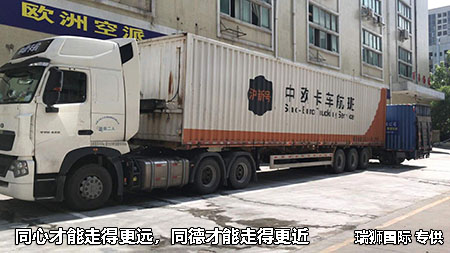 14.LIABILITY OF OTHER PERSONS
14.LIABILITY OF OTHER PERSONS
(1)Any person or vessel whatsoever, including but not limited to, the Carrier's servants or agents, any independent contractor or his servants or agents, and all others by whom the whole or any part of the contract evidenced by this Bill of Lading, whether directly or indirectly, is procured, performed or undertaken, shall have the benefit of all provisions in this Bill of Lading benefiting the Carrier as if such provisions were expressly for his benefit and in entering into this contract the Carrier to the extent of these provisions, does so not only on his own behalf but also as agent or trustee for such persons and vessels and such persons and vessels shall to this extent be or be deemed to be parties to this contract.
(2)The aggregate of the amounts recoverable from the Carrier and the persons referred to in paragraph (2) of Clause 5 shall in no case exceed the limits provided for in these conditions.
15.METHOD AND ROUTE OF TRANSPORTATION 了解更多,點(diǎn)擊進(jìn)入
 (1)The Carrier may at any time, with or without notice to the Merchant, use any means of transport or storage whatsoever; load or carry the Goods on any vessel whether named on the front hereof or not; stow the Goods, whether containerised or not, on or under deck; transfer the Goods from one conveyance to another including transhipping or carrying the same on a vessel other than that named on the front hereof or by any other means of transport whatsoever; at any
(1)The Carrier may at any time, with or without notice to the Merchant, use any means of transport or storage whatsoever; load or carry the Goods on any vessel whether named on the front hereof or not; stow the Goods, whether containerised or not, on or under deck; transfer the Goods from one conveyance to another including transhipping or carrying the same on a vessel other than that named on the front hereof or by any other means of transport whatsoever; at any
place unpack or remove Goods which have been stuffed in or on a Container and forward the same in any manner whatsoever; proceed at any speed and by any route in his discretion (whether or not the nearest or most direct or customary or advertised route) and proceed to or stay at any place whatsoever once or more often and in any order; load or unload the Goods from any
conveyance at any place; comply with any orders or recommendations given by any Government or Authority or any person or body acting or purporting to act as or on behalf of such Government or Authority or having under the terms of the insurance on the conveyance employed by the Carrier the right to give orders or directions; permit the vessel to proceed with or without pilots, to tow or be towed or be dry-docked; permit the vessel to carry livestock,Goods of all kinds, dangerous or otherwise, contraband, explosives, munitions or warlike stores and sail armed or unarmed 了解更多,點(diǎn)擊進(jìn)入
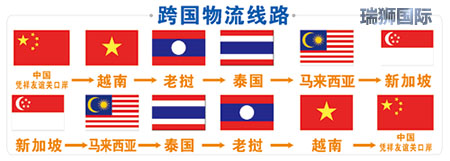 (2)The liberties set out in paragraph (1) of this Clause may be invoked by the Carrier for any
(2)The liberties set out in paragraph (1) of this Clause may be invoked by the Carrier for any
purposes whatsoever whether or not connected with the Carriage of the Goods.
Anything done in
accordance with paragraph (1) of this Clause or any delay arising there from shall be deemed to
be within the contractual Carriage and shall not be a deviation of whatsoever nature or degree. 了解更多,點(diǎn)擊進(jìn)入

 16.DELIVERY 了解更多,點(diǎn)擊進(jìn)入
16.DELIVERY 了解更多,點(diǎn)擊進(jìn)入
Goods or that part thereof stored as aforesaid (as the case may be) shall wholly cease and the cost of such storage (if paid by or payable by the Carrier or any agent of sub-contractor of the Carrier) shall forthwith upon demand be paid by the Merchant to the Carrier.
17.BOTH-TO-BLAME COLLISION
If the vessel on which the Goods are carried (the carrying vessel) comes into collision with any other vessel or object (the non-carrying vessel or object) as a result of the negligence of the noncarrying vessel or object or the owner of, charterer of or person responsible for the non-carrying vessel or object, the Merchant undertakes to defend, indemnify and hold harmless the Carrier against all claims by or liability to (and any expense arising therefrom) any vessel or person in respect of any loss of, or damage to, or any claim whatsoever of the Merchant paid or payable to the Merchant by the non-carrying vessel or object, or the owner of, charterer of or person responsible for the non-carrying vessel or object and set off, recouped or recovered by such vessel, object or person(s) against the Carrier, the carrying vessel or her owners or charterers. 了解更多,點(diǎn)擊進(jìn)入
 18.FREIGHT AND CHARGES
18.FREIGHT AND CHARGES
(1)Freight shall be paid in cash without discount and, whether prepayable or payable at
destination, shall be considered as earned on receipt of the Goods and not to be returned or relinquished in any event.
(2)Freight and all other amounts mentioned in this Bill of Lading are to be paid in the currency named in the Bill of Lading or, at the carrier's option in the currency of the country of dispatch or destination at the highest rate of exchange for Bankers Sight Bills current for prepayable Freight on the day of dispatch and for Freight payable at destination on the day when the Merchant is notified of arrival of the Goods there or on the day of withdrawal of the delivery order, whichever rate is the higher, or at the option of the Carrier on the date of the Bill of Lading. 了解更多,點(diǎn)擊進(jìn)入
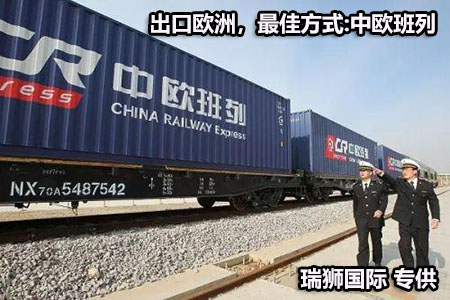 (3)All dues, taxes and charges or other expenses in connection with the Goods shall be paid by the Merchant.
(3)All dues, taxes and charges or other expenses in connection with the Goods shall be paid by the Merchant.
(4)The Merchant shall reimburse the Carrier in proportion to the amount of Freight for any costs for deviation or delay or any other increase of costs of whatever nature caused by war, warlike operations, epidemics, strikes, governments or force majeure.
(5)The Merchant warrants the correctness of the declaration of contents, insurance, weight, measurement or value of the Goods but the Carrier reserves the right to have the contents inspected and the weight, measurement and value verified. If on such inspection it is found the declaration is not correct it is agreed that a sum equal either to five times the difference between the correct figure and the Freight charged, or to double the correct Freight less the Freight charged whichever sum is the smaller, shall be payable as liquidated damage to the Carrier for his inspection costs and losses of Freight on other Goods notwithstanding any other sum having been stated on the Bill of Lading as Freight payable. 了解更多,點(diǎn)擊進(jìn)入
 19.LIEN
19.LIEN
The Carrier shall have a lien on Goods and any documents relating thereto for all sums whatsoever due at any time to the Carrier from the Merchant and for General Average contributions to whomsoever due and for the costs of recovering the same and the Carrier shall have the right to sell the Goods and documents by public auction or private treaty, without notice to the Merchant and at the Merchant's expense and without any liability towards the Merchant.
20.GENERAL AVERAGE
(1)The Carrier may declare General Average which shall be adjustable according to the York/Antwerp Rules of 1994 at any place at the option of the Carrier and the amended Jason Clause as approved by BIMCO is to be considered as incorporated herein and the Merchant shall provide such security as may be required by the Carrier in this connection. 了解更多,點(diǎn)擊進(jìn)入
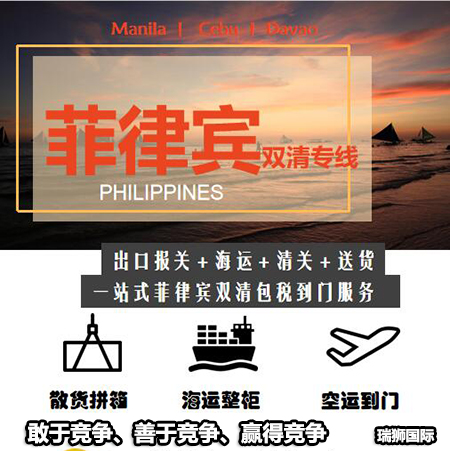 (2)Notwithstanding (1) above, the Merchant shall defend, indemnify and hold harmless the Carrier in respect of any claim (and any expense arising therefrom) of a General Average nature which may be made on the Carrier and shall provide such security as may be required by the Carrier in this connection.
(2)Notwithstanding (1) above, the Merchant shall defend, indemnify and hold harmless the Carrier in respect of any claim (and any expense arising therefrom) of a General Average nature which may be made on the Carrier and shall provide such security as may be required by the Carrier in this connection.
(3)The Carrier shall be under no obligation to take any steps whatsoever to collect security for General Average contributions due to the Merchant.
21.NOTICE
Unless notice of loss or damage to the Goods and general nature of it be given in writing to the Carrier or the persons referred to in paragraph 2 of Clause 5 at the place of delivery before or at the time of the removal of the Goods into the custody of the person entitled to delivery thereto under this Bill of Lading, or if the loss or damage be not apparent, within seven consecutive days thereafter, such removal shall be prima facie evidence of the delivery by the Carrier of the Goods as described in this Bill of Lading.
22.NON DELIVERY
If this Bill of Lading is issued evidencing the Carriers Contract of Carriage by Combined Transport, failure to effect delivery within 90 days after the expiry of a time limit agreed and expressed herein or, where no time limit is agreed and so expressed, failure to effect delivery within 90 days after the time it would be reasonable to allow for diligent completion of the combined transport operation shall, in the absence of the evidence to the contrary, give to the party entitled to receive delivery, the right to treat the Goods as lost.
23.TIME BAR 了解更多,點(diǎn)擊進(jìn)入
 The Carrier shall be discharged of all liability under the Terms and Conditions of this Bill of Lading, unless suit is brought within nine months after (1) the delivery of the Goods, or (2) the date when the Goods should have been delivered, or (3) the date when in accordance with Clause 22, failure to deliver the Goods would, in the absence of evidence to the contrary, give to the party entitled to receive delivery, the right to treat the Goods as lost. In the event that such time period shall be found contrary to any Convention or law compulsorily applicable, the period covered by such Convention or law shall then apply but in that circumstance only.
The Carrier shall be discharged of all liability under the Terms and Conditions of this Bill of Lading, unless suit is brought within nine months after (1) the delivery of the Goods, or (2) the date when the Goods should have been delivered, or (3) the date when in accordance with Clause 22, failure to deliver the Goods would, in the absence of evidence to the contrary, give to the party entitled to receive delivery, the right to treat the Goods as lost. In the event that such time period shall be found contrary to any Convention or law compulsorily applicable, the period covered by such Convention or law shall then apply but in that circumstance only.
24.VARIATION OF THE CONTRACT
No servant or agent of the Carrier shall have power to waive or vary any of the terms hereof unless such waiver or variation is in writing and is specifically authorised or ratified in writing by a director or officer of the Carrier who has the actual authority of the Carrier so to waive or vary. 了解更多,點(diǎn)擊進(jìn)入
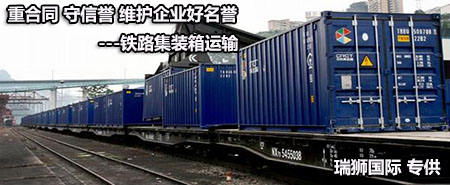 25.PARTIAL INVALIDITY
25.PARTIAL INVALIDITY
If any provision in this Bill of Lading is held to be invalid or unenforceable by any court or regulatory or self regulatory agency or body, such invalidity or unenforceability shall attach only to such provision. The validity of the remaining provisions shall not be affected thereby and this Bill of Lading contract shall be carried out as if such invalid or unenforceable provision were not contained therein.
26.MODIFIED COMBINED TRANSPORT CLAUSE.
In case of a combined transport carriage to or from 了解更多,點(diǎn)擊進(jìn)入
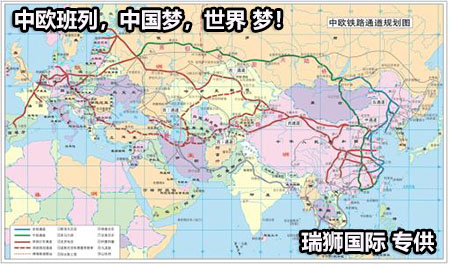 1) Australia 2) C I S Countries 3) the Continent of Africa 4) the Middle East which, for the purposes of this Bill of Lading only, is expressly defined as: Afghanistan, Bahrain, Egypt, Iran, Jordan, Kuwait, Lebanon, Oman, Qatar, Saudi Arabia, Syria, Turkey, United Arab Emirates and Yemen Arab Republic 5) India, Pakistan, Bangladesh and Sri Lanka 6.The Peoples Republic of China, the responsibility of the Carrier prior to loading and subsequent to discharge from the vessel at a port of loading or discharge to or from such places, notwithstanding the provisions of 5(2) above, the provisions of 5(3) above will apply in that when the stage of carriage where the loss or damage occurred is known and the Carrier has sub-contracted that stage, the Carrier shall have the full benefit of all rights, limitations and exclusions of liability available to such subcontractor in the Contract between the Carrier and such
1) Australia 2) C I S Countries 3) the Continent of Africa 4) the Middle East which, for the purposes of this Bill of Lading only, is expressly defined as: Afghanistan, Bahrain, Egypt, Iran, Jordan, Kuwait, Lebanon, Oman, Qatar, Saudi Arabia, Syria, Turkey, United Arab Emirates and Yemen Arab Republic 5) India, Pakistan, Bangladesh and Sri Lanka 6.The Peoples Republic of China, the responsibility of the Carrier prior to loading and subsequent to discharge from the vessel at a port of loading or discharge to or from such places, notwithstanding the provisions of 5(2) above, the provisions of 5(3) above will apply in that when the stage of carriage where the loss or damage occurred is known and the Carrier has sub-contracted that stage, the Carrier shall have the full benefit of all rights, limitations and exclusions of liability available to such subcontractor in the Contract between the Carrier and such
sub-contractor and in any law, statute or regulation and the liability of the Carrier shall not exceed the amount recovered, if any, by the Carrier from such 了解更多,點(diǎn)擊進(jìn)入
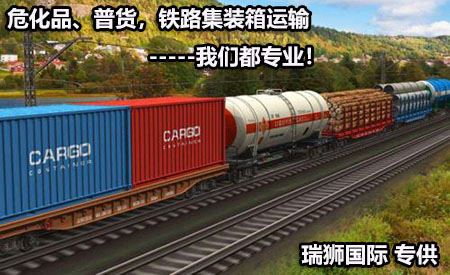 sub-contractor.
sub-contractor.
27.ADDITIONAL MERCHANT RESPONSIBILITY
1)Carrier will not be liable for any failure of the Consignee to take delivery of any Goods
transported under this Bill of Lading, and any and all Costs, Consequences, Fines, Dues, Taxes, Penalties, Levies will remain entirely the responsibility of the Merchants,
including and notwithstanding any and all responsibility towards Authorities as a result
of the failure to take delivery. The Merchant will not be absolved of the responsibility and the costs levied to return containers utilised for the transport of the Merchant’s Goods as agreed prior to the Carriage. If containers are sold as part of the Cargo the Merchant will compensate the Carrier for the costs of replacing those containers if supplied by the Carrier. 了解更多,點(diǎn)擊進(jìn)入
 2)Carrier will not be liable for inherent vice of Goods, including damage to Goods shipped in ordinary containers due to ambient low or high temperatures, shall not be responsible
2)Carrier will not be liable for inherent vice of Goods, including damage to Goods shipped in ordinary containers due to ambient low or high temperatures, shall not be responsible
for loss or damage to perishables due to hot loading, over stowage, loss or damages due
deterioration, decay, rot, heat, or frost, discolouration, change in skin texture, marked,
cut or stained bags or boxes or other packages of freights, fruits, vegetables and other goods carried expressly at the sole risk of the Merchant 了解更多,點(diǎn)擊進(jìn)入
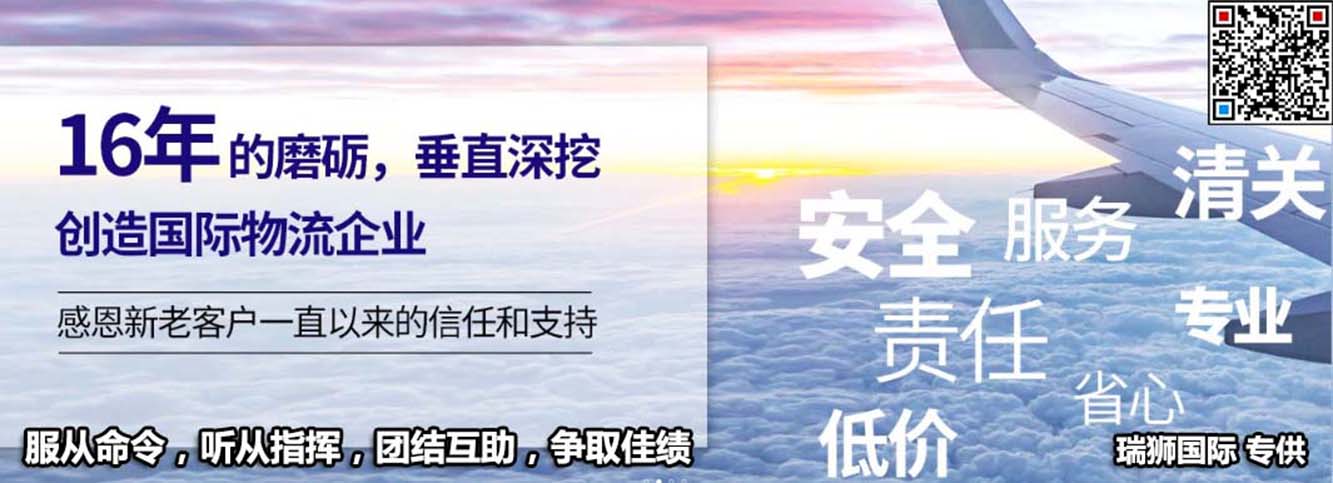
世界各國(地區(qū))關(guān)稅查詢網(wǎng)址: 了解更多,點(diǎn)擊進(jìn)入
瑞獅國際網(wǎng)站更多查詢: 更多查詢,點(diǎn)擊進(jìn)入
| 海關(guān)編碼查詢 | 出口退稅稅率查詢 | 進(jìn)口稅率查詢 | 企業(yè)情況查詢 | 企業(yè)信用查詢 | 通關(guān)狀態(tài)查詢 | 知識產(chǎn)權(quán)備案信息查詢 | 銀行匯率查詢 | 查詢更多 |
| 點(diǎn)擊進(jìn)入 | 點(diǎn)擊進(jìn)入 | 點(diǎn)擊進(jìn)入 | 點(diǎn)擊進(jìn)入 | 點(diǎn)擊進(jìn)入 | 點(diǎn)擊進(jìn)入 | 點(diǎn)擊進(jìn)入 | 點(diǎn)擊進(jìn)入 | 點(diǎn)擊進(jìn)入 |
| 東南亞專線 | 越南專線 | 泰國專線 | 老撾專線 | 柬埔寨專線 | 新加坡專線 | 馬來西亞專線 | 菲律賓專線 | 緬甸專線 |
| 印尼專線 | 斯里蘭卡專線 | |||||||
| 日韓臺(tái)專線 | 日本專線 | 韓國專線 | 臺(tái)灣專線 | |||||
| 北美洲專線 | 歐洲專線 | 加拿大專線 | 墨西哥專線 | |||||
| 澳洲專線 | 歐洲專線 | 歐洲專線 | 阿根廷專線 | |||||
| 中東專線 | 伊朗專線 | 沙特專線 | 迪拜專線 | 阿拉酋專線 | 科威特專線 | 卡塔爾專線 | ||
| 印巴專線 | 印度專線 | 孟加拉專線 | 巴基斯坦專線 | |||||
| 西歐專線 | 比利時(shí)專線 | 法國專線 | 荷蘭專線 | 英國專線 | 德國專線 | 瑞士專線 | ||
| 中歐班列專線 | 中歐卡航專線 | |||||||
| 北歐專線 | 瑞典專線 | |||||||
| 西非專線 | 南非專線 | 北非專線 | 中非專線 | 東非專線 | 尼日利亞專線 | |||
| 中南美專線 | 巴西專線 | 智利專線 | 阿根廷專線 | 其它國家專線 |
美國公司資料查詢及各各州官方網(wǎng)址大全 了解更多,點(diǎn)擊進(jìn)入 | |||||
| 紐約州(New York) | 特拉華州(Delaware) | 加利福尼亞州(California) | 田納西州(Tennessee) | 克薩斯州(Texas) | 佛羅里達(dá)州(Florida) |
| 馬利蘭州(Maryland) | 麻薩諸塞州(Massachusetts) | 新澤西州(New Jersey) | 華盛頓州(Washington) | 康州(Connecticut) | 夏威夷州(Hawaii) |
| 密歇根州(Michigan) | 亞利桑那州(Arizona) | 密蘇里州(Missouri) | 內(nèi)華達(dá)州(Nevade) | 明尼蘇達(dá)州(Minnesota) | 賓夕法尼亞州(Pennsylvania) |
| 威斯康辛州(Wisconsia) | 俄勒岡州(Oregon) | 伊利諾州(Illinois) | 臺(tái)灣線(Taiwan) | 越南線(Vietnam) | 美國關(guān)稅查詢 |
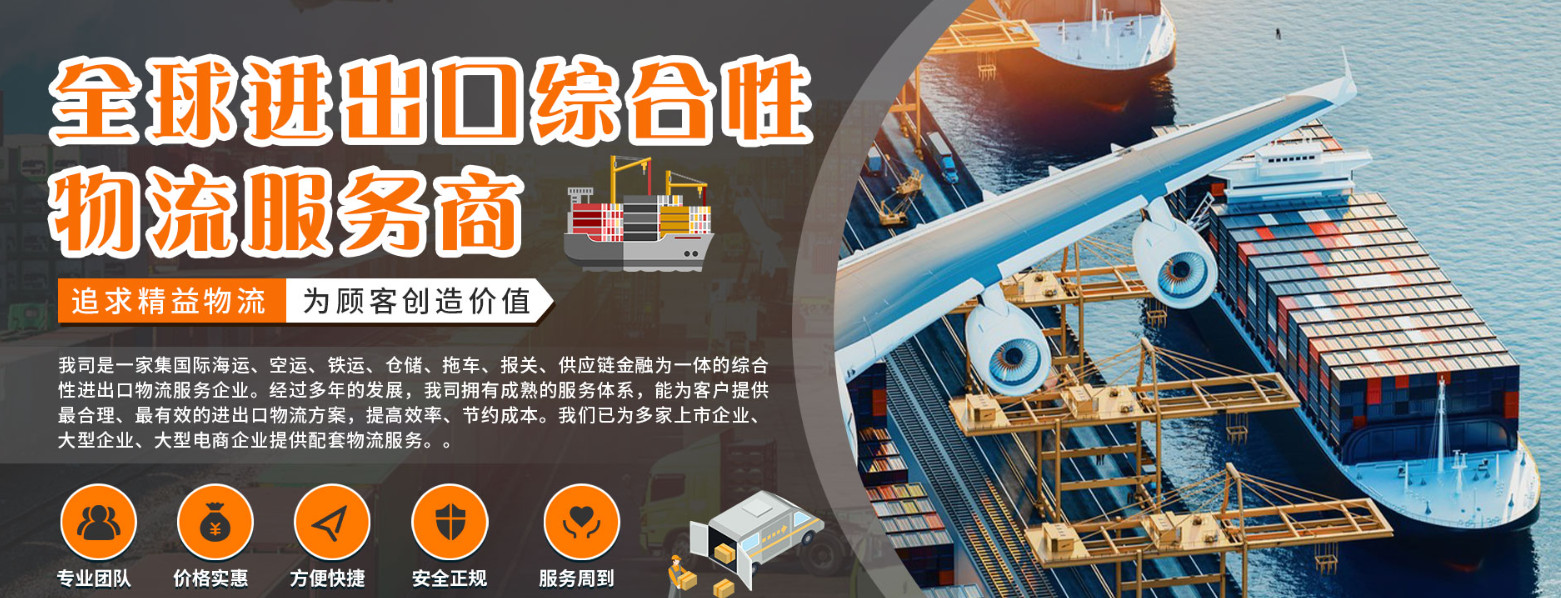
提單 相關(guān)內(nèi)容
——2024-04
提單中的主單和分單的區(qū)別?有什么不一樣
提單中的主單和分單的區(qū)別?有什么不一樣在國際物流中都會(huì)出提單,在很多情況下都會(huì)處分單,我們知道提單就是寫清楚A發(fā)給B的一個(gè)貨物,B出示身份,證明自己是B,去港口提到貨的一個(gè)文件。那么提單中的主單和分單分別是什么,有什么區(qū)別? 提單中的主單和分單的區(qū)別主單由航司簽發(fā)給貨代,分單由貨… [了解更多]
2023-11
美國海運(yùn)電放提單B/L(BOL)是什么意
美國海運(yùn)電放提單B/L(BOL)是什么意思?美國海運(yùn)電放提單B/L(BOL)是什么意思?美國海運(yùn)電放提單B/L(BOL)是什么意思?電放提單B/L(Bill of Lading)是通過電郵或者其他電傳方式放貨的憑證。英文表達(dá)是Surrendered BL 或 Telex Rele… [了解更多]
2024-10
電放提單和正本提單的區(qū)別
電放提單和正本提單的區(qū)別電放提單和正本提單的區(qū)別電放提單:只要貨到目的港,船公司就通知貨主來提貨的。正本提單:發(fā)貨人將正本提單寄給收貨人,收貨人憑正本提單向船公司提貨。電放提單和正本提單在作用的區(qū)別正本提單不僅是運(yùn)輸?shù)暮贤瑫r(shí)也是提貨的(唯一)依據(jù)和物權(quán)的證明。在信用證和托收業(yè)… [了解更多]
2024-10
海運(yùn)單和海運(yùn)提單的區(qū)別
海運(yùn)單和海運(yùn)提單的區(qū)別海運(yùn)單和海運(yùn)提單的區(qū)別什么是海運(yùn)單?海運(yùn)單(Sea Way Bill)只要consignee(收貨人)能證明自己是收貨人就可以憑復(fù)印件提貨。同時(shí)海運(yùn)單是不可轉(zhuǎn)讓的,因?yàn)镾WB不是物權(quán)憑證,不可轉(zhuǎn)讓。與正本提單相比,快速、風(fēng)險(xiǎn)較大(如果不是特別信任或者已經(jīng)收到… [了解更多]
2024-10
電放提單有哪些風(fēng)險(xiǎn)?
電放提單有哪些風(fēng)險(xiǎn)?電放提單有哪些風(fēng)險(xiǎn)?近年來,電放提單在近洋運(yùn)輸中被逐漸采用,表面上看,電放提單很好地解決了國際貿(mào)易往來過程中“貨等單”的問題,但由于目前尚無相關(guān)的國際公約和國內(nèi)立法對“電放提單”加以規(guī)范,各方當(dāng)事人間的權(quán)利義務(wù)關(guān)系并不明確,“電放提單”常常導(dǎo)致提單風(fēng)險(xiǎn)及糾紛的… [了解更多]